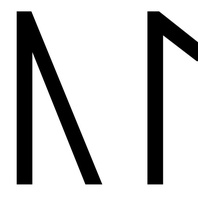
Viking Names
Tola
Tóla is a short form of names such as Þorlaug. It is an East Scandinavian name (Denmark, Sweden) and appears fairly frequently in Denmark. The name is also found in several Swedish runic inscriptions. It is attested in medieval documents from Lincolnshire referencing a woman who lived in Saltfleetby.
Read More

Viking Names
Saxi
Saxi was originally a byname derived from Old Norse noun sax ‘short, one-edged sword’, but possibly in some instances derived from an ethnonym from the name of the Saxons. An original East Scandinavian name, it is fairly common in Sweden and very common in Denmark. The name is rare in Iceland, although it is borne by one individual in the settlement period (c. 870-930). Although common in Eastern Norway, there is only a single instance of the byname Sax is recorded in West Scandinavia in the tenth century. Saxi is found in several place-names in Normandy. It is well-attested in Lincolnshire and Yorkshire although some forms may represent the Continental Germanic male personal name Saxo. Occasionally it is difficult to determine whether the first element in place-names such as Saxby All Saints, Lincolnshire and Saxby, Leicestershire is Saxi or the Scandinavian genitive plural form of an ethnonym: Old English S(e)axe, Old Norse Saxar ‘Saxons’.
Read More

Viking Names
Risby
Risby, in the West Riding of Lindsey in Lincolnshire from Old Norse hrís ‘shrubs, brushwood’ and Old Norse by ‘A farmstead, a village’. This name is found as Rejsby and Risby in Denmark and it is possible that the place-name is transferred from there. If this is the case it was presumably because it is topographically appropriate for the English name as for the Danish. Risby is a joint parish with Roxby.
Read More
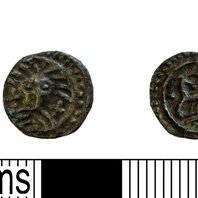
Viking Objects
Danish Silver Sceat (NARC-70AFF4)
This silver sceat is classified as part of the Danish Series X Type 31. The obverse depicts the head of Woden with crosses to either side of a rounded beard and pellet above. The reverse depicts a monster facing left. These coins are considered to be associated with the early trading center at Ribe. It is very likely that they made their way to England by means of Vikings.
Read More
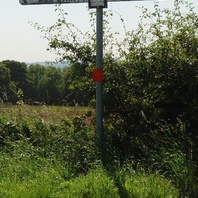
Viking Names
Saxby All Saints
Saxby All Saints, in the Yarborough Wapentake of Lincolnshire, probably takes its name from the Old Norse and Old Danish male personal name Saksi and the Old Norse element by ‘farmstead, village’. This personal name is very common throughout Lincolnshire and Norfolk. Alternatively, the first element of the place-name could be a Scandinavian gen. pl. form of an ethnonym: Old English S(e)axe, Old Norse Saksar ‘Saxons’. Thus the place-name would mean ‘Saxons’ farm/settlement’. The exact implications of such a name are not yet fully understood and are the subject of ongoing work by Dr Jayne Carroll of the Institute for Name-Studies, University of Nottingham. All Saints was affixed at a later date from the dedication of the church.
Read More

Viking Names
Asvard
Ásvarðr is an Old Norse compound name from Ás- ‘a god’ and –viðr ‘tree, wood’. There is not much evidence for this name in Old Norse sources. However, there is an Ásvarðr in Norway in the tenth century mentioned in Njáls saga. The name is found as an element in the Danish place-name Asserbo and also found as the first element of Aswarby and Aswardby in Lincolnshire.
Read More
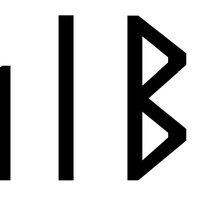
Viking Names
Sibbi
Sibbi is originally a short form of the Old Norse male personal Sigbjǫrn. As an independent name it is common in Sweden and fairly frequent in Denmark, and is recorded in a number of runic inscriptions. Sibbi is potentially the first element in the place-name Sibthorpe, Nottinghamshire.
Read More
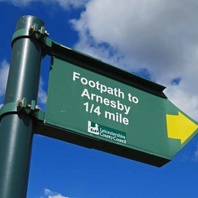
Viking Names
Arnesby
The first element of Arnesby, in the Guthlaxton Hundred of Leicestershire, is likely the Old Danish male personal name Iarund (Old Norse Iǫrundr) which might have given a Middle English form Erendes in the genitive. However, it has been argued that the specific element might be the Scandinavian appellative erendi ‘errand, message’ which may be an unrecorded byname. The second element is Old Norse by ‘a farmstead, a village’.
Read More
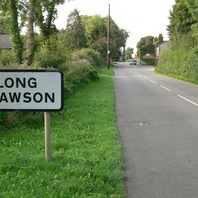
Viking Names
Long Clawson
Long Clawson, in the Framland Hundred of Leicestershire, likely comes from the Old Danish male personal name Klak (Old Norse Klakkr), an original byname probably meaning ‘a lump, a clod’. This personal name is frequently found throughout the Danelaw and occurs in other place-names such as Claxby, Lincolnshire, and Claxton, North Yorkshire. Alternatively, the first element has been suggested to be Old English clacc ‘a hill, a peak’. The second element is Old English tun ‘an enclosure; a farmstead; a village; an estate’. The village is variously described as in the Vale referring to the Vale of Belvoir, and since c. 155o the affix had been Long from Old English lang ‘long’ likely because the township is of linear formation and is approximately one mile in length.
Read More
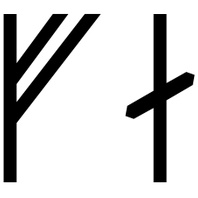
Viking Names
Thorfast
Þorfastr is a common male name in the eastern part of the Viking world – it is common in Swedish runic inscriptions and is even found in the inscription on a rune-stone fragment found in Finland, as well as a couple of Danish ones, but it does not occur in any Norwegian or Icelandic texts. It can be found in the runic inscription on the Lincoln comb-case.
Read More

Viking Names
Bui
An original byname Búi, from búa ‘to dwell’, was found in Norway and Iceland as a personal name and byname, but is rare there. In the form Bōi, later Bo, it is very common in Denmark and Sweden, where it appears in several runic inscriptions as bui and is found in the Latin forms Boecius and Boetius. It is possibly found in three Normandy place-names and it is potentially the first element in Boothorpe, Leicestershire.
